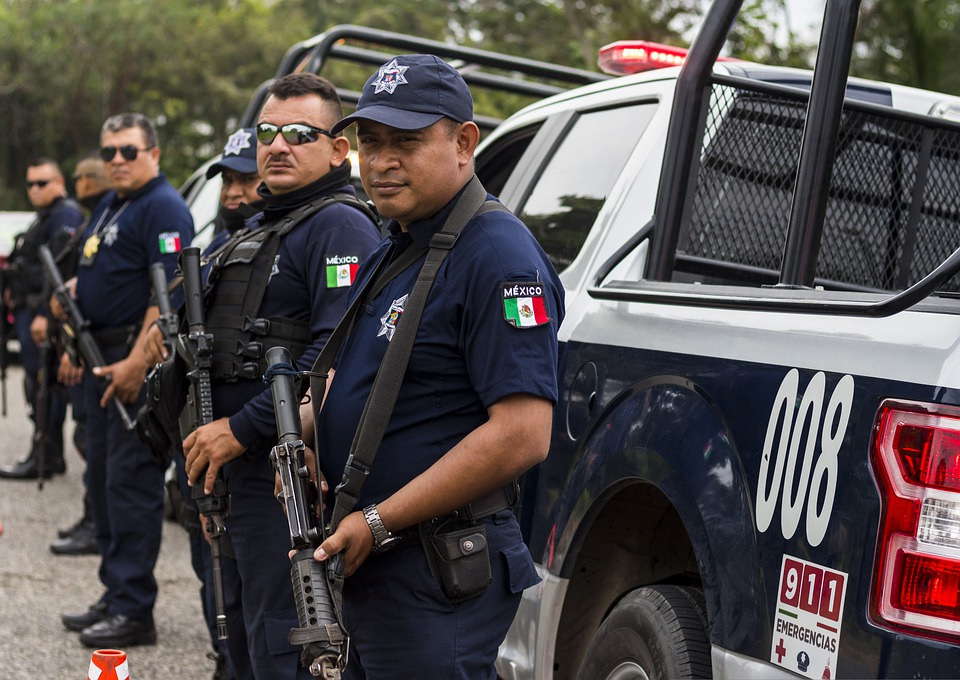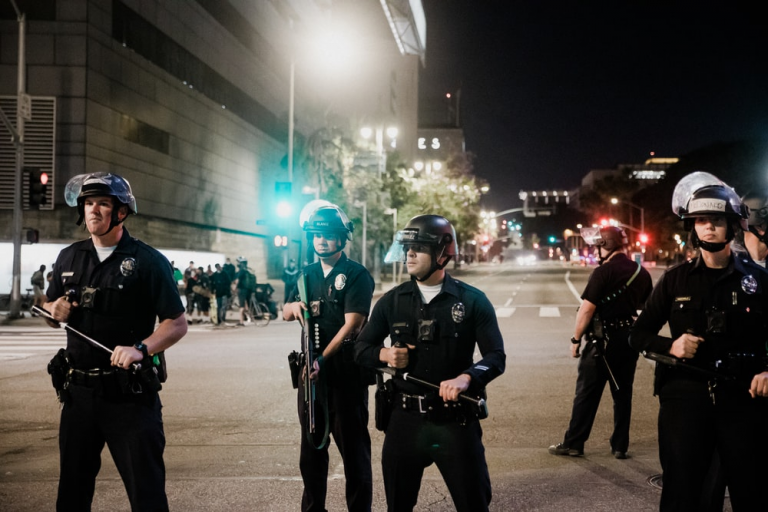A Close Look at Homicide Laws in Mexico
Have you ever heard of the term “homicide”? It’s when one person takes another person’s life irrespective of the circumstances. In other words, homicides can be either intentional (murder) or unintentional (manslaughter). There are also instances in which homicide is justified, like killing an active shooter before they cause further damage.
Mexico’s current homicide rate is 28 homicides per 100,000 people. While the rate is slowly dropping, it remains higher than it’s been in over 30 years due to factors like violent cartel operations. With an average of 94 homicides happening per day in Mexico, it’s no wonder the country’s homicide laws are extremely strict. But how do Mexico’s homicide laws work?
Here’s a breakdown of all the main aspects of homicide laws in Mexico.
The Legal Definition of Homicide in Mexico

Mexico’s Código Penal Federal (Federal Penal Code) offers quite a nuanced definition of the term ‘homicide’. According to Article 302, a homicide occurs if someone deprives someone else of their life. This occurs if a person fatally injures another person by harming their organs incurably as per clause 1 of Article 303. Mexico’s Federal Penal Code also states that the discovery of a deceased person shall only be deemed a homicide if two experts perform an autopsy and find evidence of a fatal injury. In simpler words, a homicide must involve a fatal injury as per Mexican laws.
According to Article 304 of the Federal Penal Code, an injury is considered fatal even if the injured party could’ve avoided death by receiving timely aid. On the other hand, an injury isn’t considered fatal if the deceased passed away due to a cause before the injury as per Article 305. Potential causes include the ingestion of harmful medications, botched surgeries, or living a lifestyle characterized by excesses and/or recklessness.
Intentional Homicide

Homicide During a Fight
It’s understandable for people to get involved in a scrap over a disagreement in places like bars or nightclubs. But what if it results in someone’s death? According to Article 308 of Mexico’s Federal Penal Code, if you commit homicide during a fight (whether inadvertently or otherwise), you’ll face up to twelve years in prison.
The penalty for committing homicide in a fight can be compounded if you’re charged with other offenses simultaneously like being under the influence of drugs (covered under Article 195 bis). In other words, being intoxicated due to drugs won’t exempt you from facing a lengthy prison sentence for committing homicide during a fight.
Homicide During Mourning
Have you heard of Cain Velasquez? He’s a former two-time UFC Heavyweight Champion who was arrested for attempted first-degree murder. Velasquez tried to gun down a man with a record of sex crimes for molesting his 4-year-old niece at a daycare. When asked why he did it, Velasquez cited feeling enraged at the thought of what had happened.
Mourning involves grieving over the death of a loved one. Therefore, Velasquez’s case isn’t an example of attempted homicide during mourning—but we felt it deserved a mention because the principle is the same. If you attempt a homicide in Mexico out of anger or sadness, you’ll be liable for two to eight years in prison as per Article 308 of the Federal Penal Code. This is more lenient than the penalty for committing a homicide during a fight because it involves a lack of emotional control on the perpetrator’s part.
It’s worth noting that Mexico’s criminal justice system accounts for factors like who provoked whom and the nature of the provocations when sentencing individuals that have committed homicide during mourning.
Homicide During a Break-in
If an individual enters a home without permission and kills the homeowner, they will face a prison sentence of thirty to sixty years as per Article 315 Bis and Article 320 of the Federal Penal Code. However, this will only occur if the homicide is deemed ‘qualified’.
According to Article 315, qualified homicides are premeditated homicides committed by perpetrators with an “advantage” that involves treachery or betrayal. Perpetrators are deemed to have an advantage if they’re stronger than the offended party as per Article 316. The criteria for having an advantage during a homicide also include being armed or harming an individual that was unarmed and/or had fallen. If the perpetrator was skilled at using weapons or weakened the offended party before committing homicide, they’re also deemed to have had an advantage.
Familial Homicide

If the parties involved in a qualified homicide share direct relations, the offender could face up to sixty years in prison as per Article 323 of the Federal Penal Code. Direct relations refer to family members such as siblings, spouses, and parents, as well as cohabitants, partners, civil partners, adopters, and adoptees. But what if the familial homicide isn’t qualified? For instance, what happens if a family member accidentally passes away due to an act of negligence?
If that’s the case, no action shall be taken against you unless you were under the influence of alcohol, narcotics, or psychotropic drugs for recreational purposes as per Article 321 Bis. However, you may be banned from visiting certain places as per clause 2 of Article 322.
It’s worth noting that individuals who commit family violence by dominating or controlling a family member could face up to four years in prison as per Article 343 Bis. This law is designed to prevent poor familial relations from deteriorating to the point that a familial homicide takes place. Family violence typically manifests as physical or psychological aggression, as well as ‘patrimonial or economic’ aggression involving the abuse of your role as a parent or guardian as per Article 343 Bis.
Assisting Someone to Commit Suicide

Did you know assisting someone to take their life is considered homicide in Mexico? No matter how clear an individual is about wanting to end their own life, if you encourage it, you could face between 1 and 5 years in prison as per Article 312 of the Federal Penal Code. If you execute the person, you’ll face between 4 and 12 years in prison.
Suicide is an extremely sensitive topic that warrants the consideration of several factors such as the sanity of the person wanting to end their own life. According to Article 313, if the deceased person was diagnosed with a mental illness and an individual either convinced them to commit suicide or executed them, it would count as a qualified homicide. In other words, the offender would end up in prison for thirty to sixty years.
It’s important to note that Mexico’s laws treat suicide cases involving minors in the same way as those involving the mentally ill. In other words, convincing a minor to commit suicide or executing them also counts as a qualified homicide.
The Presumption of Premeditation

How do you know if a homicide is premeditated? This is an extremely important question that dictates whether a perpetrator is charged with a qualified or unqualified homicide. In Mexico, only premeditated homicides are considered qualified homicides.
According to Article 315 of the Federal Penal Code, premeditation is presumed when the perpetrator intentionally commits a homicide after reflecting on the crime. In addition, if a homicide has occurred due to a flood, fire, or using explosives like mines or grenades, it’s considered premeditated. Homicides involving the use of poison, intoxicants, suffocation, or a venereal contagion are also considered premeditated. In all these instances, the penalty is thirty to sixty years in prison.
Femicide

Did you know the Inter-American Commission on Human Rights recently observed an uptick in violence against women in Mexico? This includes femicide—defined as a homicide in which the victim was female, and the crime was committed because of the victim’s gender.
This year, 229 confirmed cases of femicide were reported in Mexico and 24,600 women are still missing. According to Mexico’s Federal Penal Code, individuals found to commit femicide face between forty and sixty years in prison. They’re also liable for a fine equivalent to one thousand days of their daily wages. These penalties are significantly harsher than the penalties for committing qualified homicides as they’re designed to deter violence fueled by sexism. But how do Mexican authorities ascertain whether one of the main reasons for homicide was the victim being female? That’s where Article 325 of the Federal Penal Code comes in.
According to Article 325, femicide is ruled to take place if a woman loses her life in homicide and there’s evidence of sexual violence before death. If the victim suffered degrading injuries such as mutilation or there’s evidence of a post-death rape, the perpetrator is also charged with femicide. Moreover, if the perpetrator had an affective relationship with the female victim before the homicide was committed, it’s ruled femicide.
It’s worth noting that only one of the above-mentioned circumstances must be true for the perpetrator to be charged with femicide in Mexico. Additionally, if the individual who committed femicide is a public servant (such as a law enforcement officer or politician), they’ll be liable for an additional three to eight years in jail and a fine worth up to one thousand five hundred days of their daily wages. They will also face disqualification from public employment for three to ten years depending on the circumstances of the femicide. These penalties apply to all homicides as well.
Summary

Mexico’s homicide laws are designed with several factors in mind. Firstly, they’re designed to punish the perpetrator without robbing them of a chance to change into a better person. This is primarily why the death penalty was abolished in 2005. While it’s tempting to assume a person that commits a homicide deserves to die in return, this outcome ignores various factors that drive people to kill other people. For instance, suppose you come across a child recruited by a cartel who has been trained to kill. If the child grows into an adult and kills another cartel member, would you execute them or try to rehabilitate them? This is the sort of question Mexican legal authorities pondered before abolishing the death penalty.
Secondly, Mexico’s laws on homicide ensure perpetrators with more power pay more for their crime. This is why public servants that commit homicides are charged accordingly and face additional prison time, fines, and a ban on holding public office positions. Similarly, those in a position of ‘advantage’ over their victims such as armed and/or physically powerful offenders are given heavier penalties for committing homicides than others.
Ultimately, Mexico’s homicide laws balance severity with rehabilitation. Having fought a long and bloody battle against the country’s cartels, the Mexican government knows that fighting fire with fire isn’t ideal when it comes to crimes like homicides. Therefore, the country’s criminal justice system contains numerous examples of criminals being offered the chance to rehabilitate rather than suffer endless punishment.
We’ve done our utmost to cover every aspect of Mexico’s laws on homicides in this article. If you require further information and/or clarification on any of the laws we’ve mentioned, we recommend getting in touch with Fabian Meneses at Meneses Legal.

Fabian is an expert cross-border crimes attorney in Tijuana. He works with a team of seasoned criminal defense lawyers who have over 40 years of combined experience and specializes in defending clients facing all types of homicide charges in Mexico. Fabian and his team also defend clients facing drug, firearms, sexual assault, and contraband trafficking charges.
If you want to consult a seasoned homicide crimes attorney with a proven track record, email info@meneseslegal.com or leave a message on the Meneses Legal website to get in touch with Fabian and his team.







